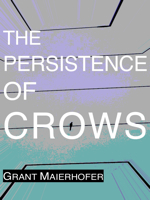Me: Your full name and age.
Him: My full name is Robert Patrick James. I was born in 1957, so that makes me 45 years old.
M: That’s the same year “On the Road” was published.
H: Yep, yep. You know Jack Kerouac, ah? Yep. Cool.
M: Yeah. Place of birth.
H: Um, La Mesa, California – in San Diego, yeah. A native. (Laughs)
M: True native. And then if you have any degrees, higher degrees, what’s the highest one you’ve obtained?
H: Actually my high school graduation. I don’t know if you can call that a degree, but that’s about the extent of my, my formal education.
M: And do you belong to any memberships or associations? Like this would be one (Referring to the pamphlet he gave me).
H: Yeah, um, been involved with the historical society from its inception back in 1994. And, um, ‘bout a year or so ago I became president, so um I’ve worked closely with a lot of fellow board members, um, and then, we’re also, through association with our business, we belong to quite a few local groups: local main street association, you know, because we pay BID taxes and stuff you automatically become a member, and then um, um that’s probably the most of it. We are involved in the community a lot. We get involved in a lot of different aspects of stuff that’s going on.
M: Within Ocean Beach?
H: Mostly. Yep.
M: Okay. And are you married?
H: Uh-huh. Yep.
M: Do you have any children?
H: No children. No. We have three cats, two rats. And like about eight fish. (Laughs)
M: Do you keep the rats, like, in cages?
H: Yeah, they got a big cage, a big rat condo. Yeah. They’re cool pets.
M: Really?
H: Yeah. Rats are very intelligent little animals. They’re pretty neat.
M: Big? Or, uh, how big are they?
H: Well, they’re, you know (estimates size with his hands).
M: Like six inches?
H: Yeah. Yeah.
M: All right. So what is the name of your current business?
H: Um, the James Gang Graphics.
M: And has it won any awards or notable achievements?
H: Um, yeah throughout the uh, let’s see, 28 years now of our existence, we won some industry awards. Um, we won an award back in the eighties for some of our embroidery work – that was um, through a national trade publication. Um, and then we’ve been awarded, like, all of my brothers in 1981, we were awarded Citizens of the Year uh by the San Diego Lifeguard Service because we were involved with a lot of community events that became traditions. And back then it had been a few years that we had these traditions going and we were real involved with the community, so we received Citizens of the Year Award.
M: Okay. Like San Diego Citizens, or Ocean Beach Citizens?
H: You know, it was through the San Diego Lifeguard Service so I would imagine – yeah, I’ve got a plaque at home – um, but I figure it was mostly for San Diego.
M: Okay. Then please describe your current business, its date of establishment, and the resources you used to start it.
H: Okay. Um, currently we do both screen-printing and offset printing. And the screen-printing we do mostly on textiles, t-shirts and uh sports ware – various types of sports ware. We also do offset printing: basic commercial work. But we have a lot of real nice equipment, so that we have a lot of capabilities probably beyond what we are doing. And the business was established back in 1976 by my three older brothers, um, and within a year’s time, two other brothers, myself and my brother Mike, joined them because we could see the business was really taking off and they needed help. And the reason my brothers got into screen printing was my oldest brother Ron in college did some silk screening and was living up in northern California at the time and as some side projects he decided to silk screen some signs for some of the resorts up on the lake up there. They all ended up coming back down here and were working in the graphics field, shooting film and stuff in the darkrooms and my brother Ron goes, ‘You know what, we oughta try silk screening some t-shirts.’ So they started on a shoestring. And when I mean a shoestring, I mean they went and sold one of their first accounts, which was a bar in OB and it is today. They took a deposit on the job and pretty much sat there and drank up the deposit trying to figure out how they were going to print up these shirts, you know, it was that type of thing. And they started with just, you know, very minimal equipment. And back then there was very few screen printers, particularly in San Diego County, there was maybe a handful, like maybe like six or so. The business was fairly secretive, so there was a lot of trial and error and learning, and um hanging shirts to begin with, you know, just a pretty crude operation. And then, as we could see it was taking off we started investing in a little more equipment; at one point we took on a partner that was able to fund us for some equipment. Um, that lasted only a couple of years before we bought him out, you know. So, yeah, it was pretty much started on a shoestring and I’d have to say it has probably been operated on a shoestring pretty much all these years, but uh, you know, it’s a good business. It can be hectic at times, for sure. I’m not sure how I ended – (laughs) – up in it, you know. Sometimes I wonder. I look back and, pretty interested after all these years I’m still at it.
M: And why did your other brothers leave; why are you the only one doing it now?
H: Um, just over a period of time, you know, that piece of pie for us to make a living on was pretty small once we divided it up, and, um, brothers had other aspirations – they weren’t drawing a lot of money. My oldest brother was getting into computers and multimedia and went on to write some books, and um, then my second – or my third oldest brother had children. Again, you know, he wasn’t making a whole lot of money and he figured he could probably go home and raise his kids and, you know, be better off that way, and that’s what he did basically. So he raised his kids for about ten years and did some handyman work on the side and um, got real involved with the schools – was PTA President for a lot of years – and therefore, working with the schools, he ended up with a position at one of the schools and that’s where he works. Um, and then another brother – you know, particularly through hard times – there was a period when we moved from Newport Avenue over to Bacon, where times were very difficult. In fact, nobody knew if we were even going to continue to be in business because of all sorts of influences. So it was a real struggle to keep alive. And at that point it was kind of like, ‘What’s the use?’ So they just kind of took off, you know. By the time my wife and I bought the business we hadn’t even married yet. We just decided, you know, it’s like, we saw some potential there. You know, I was just kind of used to living and working at the beach and, you know, I didn’t know what I would do, so we decided to buy my brothers out, and that’s what we did. Um, so yeah – yeah.
M: And then, I don’t know if you’ve already answered all of this, but, you know, what made you get into it, what made you buy your brothers out? Were there any specific reasons or inspirations? If there’s a story behind it that you can think of.
H: Yeah, um, again I think we could see potential there and that’s why my wife and I decided to stick it out. Now if we knew what the first two years was going be, we probably wouldn’t have because it was a real nightmare for us. But um, you know, we survived it and um, I think just the aspect of being self-employed, working for yourself, you know, I had only had one boss in my life – that was when I was in high school, and, you know, besides having a business here, it’s sort of a lifestyle sort of thing, too. You know, walk to work along the beach, not have to get on freeways, not have to answer to anybody else, you know, um, the freedom that being self-employed gives you I guess, if you can arrange that because, it’s like, sometimes you’re either flexible and you have the freedom or sometimes you’re tied down to it completely in the business, so it just, I’m sure it depends on the business and the dynamics of the business. But, uh, you know, now that we’ve got a good staff in place we do have a little bit more freedom to come and go, but it wasn’t like that for a long time. We felt like we were, you know, pretty much tied down to the business. And then I don’t know if I covered the other part of that question there.
M: Which one, the one about reason and inspiration? Is that the one you were thinking of? You can look at these questions.
H: Yeah – (I hand over my clipboard)
M: We’re in that area (I point to the place)
H: Yeah, you know, one thing that I liked about the business is that there’s a certain amount of craftsmanship that goes into it, and I’ve always been real good with working with my hands and stuff, and so, I don’t know, it just seemed like something I should continue doing for the time being because, you know, we had been established for quite a long time, and had a decent client base, um, although the competition got really fierce for awhile – seemed like everybody and their brother was opening up a t-shirt printing shop – but, uh, you know, we managed to stick it out through the tough times.
M: How many years after its date of establishment did you buy out your brothers?
H: Um, that was like in 1990. Yeah, so from ’76 to uh – yeah, fourteen years. Yeah.
M: Okay, and then – yeah, you’re answering a lot of these – like did you have any experience that you considered useful? You said craftsmanship with your hands. Yeah. That’s mainly the main one?
H: Yeah, yeah basically. You know, and just what I’d learned over the years. I figured that I learned a trade, you know, why not stick with it?
M: And, you know, since then have you acquired any experience that has made you better equipped?
H: Well yeah, I mean we had to pretty much learn the offset business from the get go. You know, even though I had screen-printing background from the fourteen previous years, um, and knew about, you know, photographic impressions and stuff, we just didn’t know that much about it. So, I mean, we pretty much learned that whole trade, my wife and I, uh, so yeah.
M: Just get out the manuals and learn how to use those printers?
H: Yeah, and, you know, rely on people, finding good people. You know, that was key. When we first started that wasn’t the case; there were people in there that just didn’t seem real willing to help us out much. And uh, then we hired – we ran an ad – and hired this guy that lived in OB, and uh, was a great pressman, he’s been with us ever since. That’s been, you know, ten years I think now.
M: All right, and, let’s see, generally speaking would you say that your business has grown since its establishment and what indicators are you using to determine this?
H: Well, of course I guess you’d look at numbers. Um, we’ve gone through growth spurts. I mean, uh, for a while we had a retail store – my brother, Ron, he’s quite an entrepreneur, he’s probably the biggest entrepreneur of all – he started bag manufacturing, um, shop. So we were sewing and manufacturing bags here in Ocean Beach, just down over where Swoozy’s is. Um we had about six people in there sewing and so, for a time we probably had pretty close to twenty, maybe twenty-five employees, so we went through some substantial periods of growth, particularly in the beginning when there wasn’t a whole lot of competition. I mean, we didn’t have to go out after the work. All the work we wanted came to us, um, which did eventually change. It got very competitive, and, you know, again, lots of people started printing t-shirts, so there were times when we downsized – got back to basics – and that pretty much had to do with 1990 when we moved in. Not only with the recession at the time, but a series of events: having to move was costly for us, being a little bit over staffed, you know, um, getting behind on tax bills, you know, it got really hairy there for awhile. So yeah, we went through some substantial periods of growth, and then um pretty much downsized – I think we’re at a comfortable level now, but uh, back in the early days I know we did a few years where we were grossing over a million dollars, and that sounds like a lot, you know, (Laughs), and I guess it is, but you look at the net and what we’re putting in our pockets and, you know, it’s like . . . um. And I think in the early days, too, with five brothers is almost like too many chiefs, you know. So, the management probably wasn’t as good as it could’ve been, you know, which is important, and that’s probably why we got into some of the situations we got into. Um, one of which was losing our lease at that building – an oversight on our part. We had a sixty-day window to renew our lease in that building, which originally was a Safeway building, but it had been bought out by Vons, or something conglomerate, and uh, the 59th day out we got a phone call, we’re going to have to rewrite your contract. Well, they basically told us they wanted to triple our lease, and we had a sweet deal, you know, but tripling definitely wasn’t what the market could bear here in OB, but they basically wanted us out of the building. So, and it was pretty devastating at the time, but in hindsight I look back and I say, ‘There was a reason for that,’ because I think if we would’ve stayed where we were with what we were doing we may not have made it anyway.
M: Why do you say that?
H: Well, we had a retail store, and the retail store was just kind of holding its own. You know, it wasn’t really adding that much to our livelihood. Um, and then the recession, and then the competition, um, so, and then now having to move, buying the offset printing business. So we diversified in that business, and there’s probably more potential to realize a profit in that business.
M: Okay. And you do have competitors in the area. How do you deal with them?
H: Well, it’s sort of interesting, ‘cause there’s like smaller shops, like ourselves – I consider ourselves a fairly small shop compared to a lot of the guys that went big. They bought several automated presses and bought all of the state-of-the-art equipment and, um, so there’re some real big shops in town. Right now I hear they’re singing the blues a little bit ‘cause, you know, there’s not all that much work. They usually rely on the real high volume stuff, and uh, most of our clients were small business people, although we do work for large corporations and stuff and ball teams, and just, you know, more everyday type of work that you’d see around town. So, um, I’m not sure where I was going with that (Laughs).
M: So yeah, you just deal with them because you have a different clientele base?
H: Yeah. And we were fortunate because we had been around for a long time, so we had a good customer base and we had a lot of loyal customers, um, we’ve never been real strong on marketing and outside sales. We’ve always kind of relied on word-of-mouth referral, you know, business coming to us, and just, um, the client base we had. So… and I never really, there was a couple companies in town that I considered competition, but I figured there’s probably enough work for, you know, a lot of shops, and the ones that, you know, weren’t strong, didn’t survive. And then it sort of gets cut throat, too, you know. Especially when things slow down, people start low-balling on their pricing and stuff. You know, we just decided, ‘We don’t want to play that game, we know what we need to be making to sustain our business and to pay our people a decent wage and, you know, if it takes bastardizing the industry forget it.’ You know, we want to make a decent living here, have our employees make a decent living, and just not play that game, and I think that’s one of the reason that I didn’t want to grow again and become a big automated shop. And besides that, property here is pretty valuable, too, so um, as far as square-footage there wasn’t really much suitable in this area for becoming a real big shop. So, I think we sort of found our little niche, you know.
M: Okay. Yeah, you’ve answered a lot of these. Let’s see here. You know, like, the ups and downs – you said that you’ve had growth spurts – and then if you know the years and if they’re any outside factors you can attribute them to. I know the recession has affected people. Do you know of any specific instances.
H: As far as?
M: As far as, you know, the years that you’ve had growth spurts, do you know why? The years that things have leveled out or gone down, do you know why?
H: Well, I think our business is a real good indicator, sort of a barometer of the economy, because we do so much work for small business, so when another small business is hurting, we feel it, so, I would say our – we pretty much go with the economy. As far as, you know, when things are tight and lean for everybody else, they’re sort of tight and lean for us. But when, you know, everybody’s walking in tall cotton and, you know, we’re doing better. So, and uh, you know so I think we get a pretty good feel that way about what’s going on.
M: That’s good. And do you have any remedies that you prescribe to yourself when business goes down; things that keep you relaxed or stress free, hobbies or anything like that?
H: Yeah, you know, of course, living and working here at the beach. You know, the business itself gets real stressful and you have to learn to deal with it, and I still have a hard time with it sometimes, but there’s diversions like, you know, I’ll have a bad morning: I’ll go body surfing at lunch and my outlook after body surfing for an hour is just like totally different than when I went in the water. You know, so it’s just a matter of controlling that stress or, you know, being able to deal with it. But being able to do that, being able to run down to the beach at lunch and go body surfing or surfing, you know, it’s like that’s probably one of the reasons I’ve stuck with it, you know. Again, I don’t have to get on the freeways and, you know, by the time I show up at an office somewhere be stressed out just from driving in traffic or whatever. So, I mean even though the business is stressful, there’re less stressful areas in our life. You know, my wife and I live pretty simply, um, try to keep things not too complicated, um, so we try to make our home-life and our life outside of the business as stress-free as possible.
M: Let’s see. And then you said you don’t really advertise; it’s mainly word-of-mouth, right?
H: Mainly word-of-mouth. We like to support our little local newspaper, The Beacon, um, we don’t advertise all of the time, but we, you know, special events and stuff… we should probably advertise a little bit more than we do. But, for the most part, we seem to be staying about as busy as we want. Um, when things get slow, you know, we do some direct mailing since we have our own print shop – we’re able to do our own printing – so we do direct mailers. We’ll target a market, like say for schools, and we’ll, you know, send out little cards and let people know we’re out there. When we do advertise now it seems to be more direct mail and stuff that we can do the printing ourselves, you know, it’s just a matter of paying the mailing and stuff. But we’re always looking for new markets, new avenues, um you know, we always look for maybe… there’s just so much you can do from the screen printing end of it. You can do what we call pre-prints. It’s like the, the shirts for the tourists’ trade, you know, where we can just basically wholesale them to somebody, you know, and maybe not do so much custom work for people but uh, it’s just hard finding the time. I mean we got all these ideas and stuff, trying to implement things, and do it… it gets sort of difficult. So we just pretty much stick with what brings in the money.
M: How many employees do you have?
H: Right now we have about 12 employees. Yeah, that’s with office people, offsetting/screen printing people, and that’ll probably be it for this summer as far as, you know, busier summers we’ll hire more people. This summer’s fairly busy but I think 12 is probably going to be about it. And then there may be like a couple people going back to school in the fall, that’ll end up being part-time, so we’ll probably end up with like 9 or 10 come fall.
M: How many hours a week do you work?
H: Well now I think I got it down to probably about fifty or sixty. (Laughs). No, um, for a long time there my wife and I were working a tremendous amount of hours but uh, right now I usually try to keep it to about 8 or 10, um, I’ve become a morning person, so, many mornings I’m the first person in there. I mean a lot of mornings I’ll watch the sun rise through the shop window. Um, but then I try to cut out about 3 or 4 in the afternoon. So, I like getting in early. I don’t know, I just –
M: So you work about 8 to 10 hours a day usually? Is that what you’re saying?
H: Yeah, usually, but there was a time when we were, you know, working a lot more and it was a burn out. You know, you can’t keep up that pace. And as time goes on, especially realizing that I don’t have a fat retirement account, I could be doing this for awhile longer (Laughs). So, we try to figure out ways to get more of a life all of the time and still have the business and have it running efficiently. You know, so we do try to… we’re looking forward to maybe working it for several more years and then maybe semi… well, I guess that’ll be more down the road… semi-retirement. More like 15 years maybe, but, you know, um, it’s just hard right now because – to think about it – because, here I am, 45, and I don’t have much of a retirement account, so the only thing I can look forward to is probably working the business for as long as I can. Now, we don’t own our building that we’re at now… and who knows how long that’ll last, so, um, I hope to be able to maybe purchase it someday, but um, if it were to get down to where we would have to move the business again, I think it’d be time for me to find a new career (Laughs). I don’t know what that’d be, but it’d be – I think about it quite a bit – I think it’d be uh… I know there’s a lot of opportunities out there, but I’m just not sure what I want to do, you know. I’ve always been sort of a mellow guy, you know, and it’s like, maybe don’t have quite the exact temperament for having a printing business sometimes because it does get pretty hectic and stuff, so I think I’d probably find a little mellower occupation, or career of some sort.
M: All right. So would you describe yourself as an entrepreneur?
H: Yeah, I would say so. Um, again, you know we’re always looking for new things to do, too, just to mix it up a little bit. Um, my oldest brother – well, all of my brothers are entrepreneurs – but uh, yeah, I’d consider myself an entrepreneur… maybe more of an entrepreneur than a business person sometimes, you know, because a lot of the entrepreneurs are good at ideas and starting businesses, but then to run a business is another thing. I mean I’m always kind of looking out for uh, you know… like uh, right now I just started some tie-dyeing in my garage ‘cause I see, ‘Well there’s kind of a market for this stuff.’ We get people, ‘Do you guys carry any tie-dyes?’ ‘No, we don’t. We have suppliers that we can buy them through.’ So I’m just experimenting… I got a little shop setup… and I’m realizing that this is probably not what I want to do (Laughs). After I got dye covering my hands, and realizing how painstaking it can be, and I have a newfound respect for tie-dye artists, but uh, you know, I’m having fun with it and I’m exploring and I do have a creative side – I’m somewhat of an artist – so, you know, and I’m still seeking out my medium. So, uh, you know I’m always just kind of looking for things, ‘cause I mean, a lot of people have businesses and go on to do other things. I’ve even been considering lately going back to school and learning some new things; I’ve really gotten into history, especially the local history here. Um, so you know, I’m always looking to broaden my horizons, whether it’s education or business.
M: What advice can you give to aspiring entrepreneurs?
H: Well, I’d just say: do your homework, come up with a reasonable business plan, you know, check your market. And it’s funny because every time that we want a loan or something, we have to come up with a business plan. I’ve never been real strong with business plans and being able to write them, but I feel it’s important, you know, you got to know where you’re going; you got to have a map ‘cause um, you know, a lot of people start businesses on a whim and I’ve just seen them come and go and, you know, I mean you can spend a lot of time and money and uh become aggravated and let years go by. It’s just important to have a business plan – a road map – know your market, know your product.
M: Do you work out? Why or why not?
H: Yeah, I work out and I’ve… particularly the older I get, the more better I’ve taken care of myself. Um, you know, back in the early days, being here in business, we partied a lot and, you know, I mean, kind of ran myself into the ground for awhile, and then realized one day that that’s not the path that I wanted to take, so I pretty much gave up all the nonsense and uh restored my health, um, thought about mortality, but uh, just learned to get away from the lifestyle that I was in then and sort of change my life. So I pretty much went through a transformation about eight, nine years ago.
M: Was there anything that triggered that?
H: Just… being tired of being sick and tired, you know. You’ve heard that a million times haven’t you? You know, I liked to drink beer, and I liked to drink it too much, you know, so I figured, you know, probably the best way to do it was to give it up completely. And I did, and I did it on my own, I never went to an AA meeting and… took me about five years to talk myself into it, but I mean, I’ve never had to go to any kind of recovery home, or you know… I pretty much did it on my own. And it was just a matter of time, you know. I figured I wasn’t 25 anymore, you know. Um, I don’t know if I feel like I missed some of that in college, or whatever, but it’s like… almost like a frat boy for a lot of years (Laughs).
M: What is your dream? Have you achieved it?
H: No, I wouldn’t say so because for being in business for as long as we have – 28 years – I don’t have a lot to show for it. I don’t have material trappings, you know, and I’m into the simple lifestyle; I don’t need a lot, but I don’t own any real estate in Ocean Beach either and I’m concerned about that because I do want to stay here – I love this community very much – but with the way the real estate’s been going, our dreams of owning a home here seem to be, sort of becoming more and more out of reach. (Gap) I do have a dream of maybe being able to buy a house here in Ocean Beach. And it doesn’t need to be much; I’d love to have a little historic cottage, you know, I don’t need the big house up on the hill. I just want to live comfortably and have a little piece of it so I don’t feel threatened, I don’t feel like, you know, I’m going to have to move.








